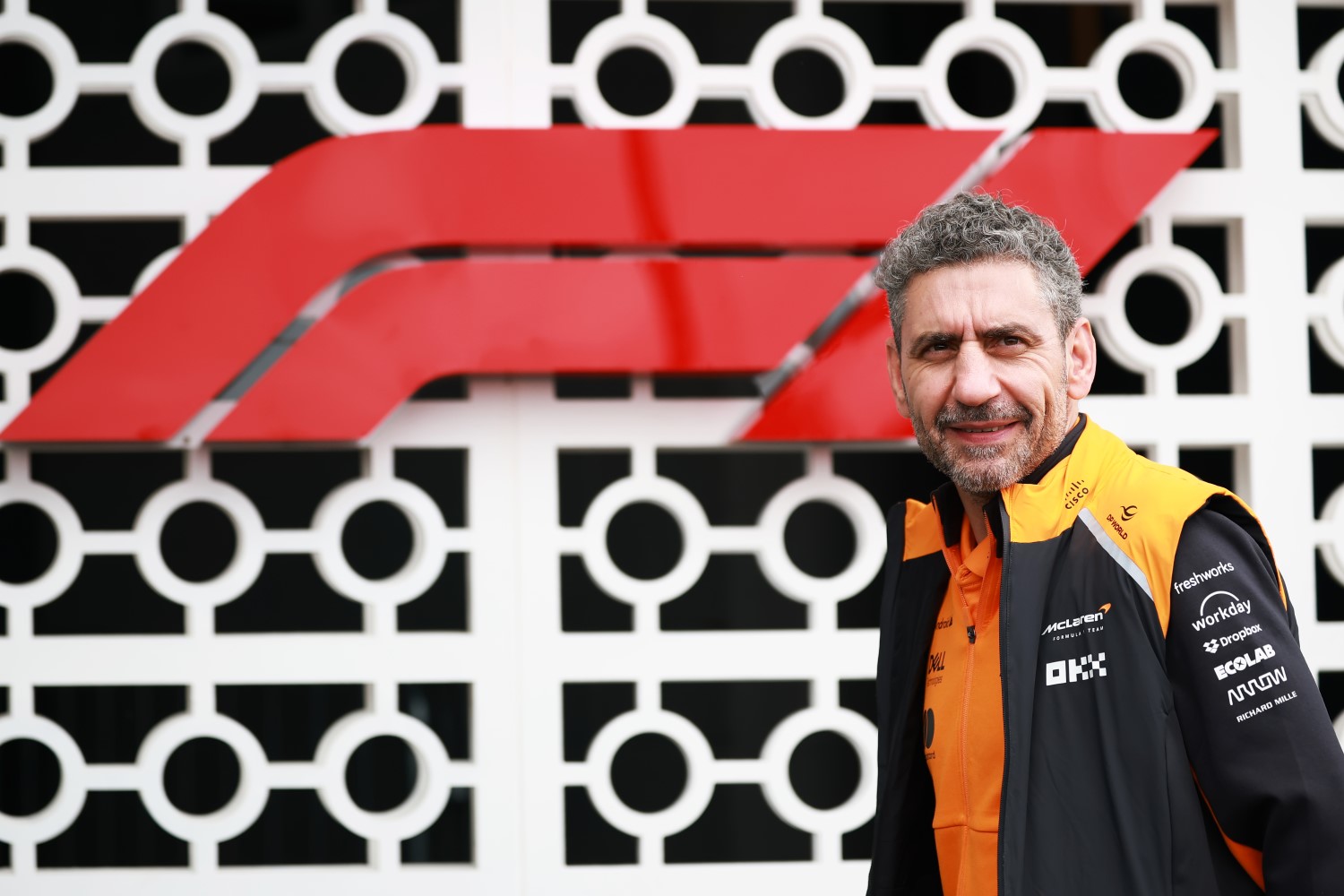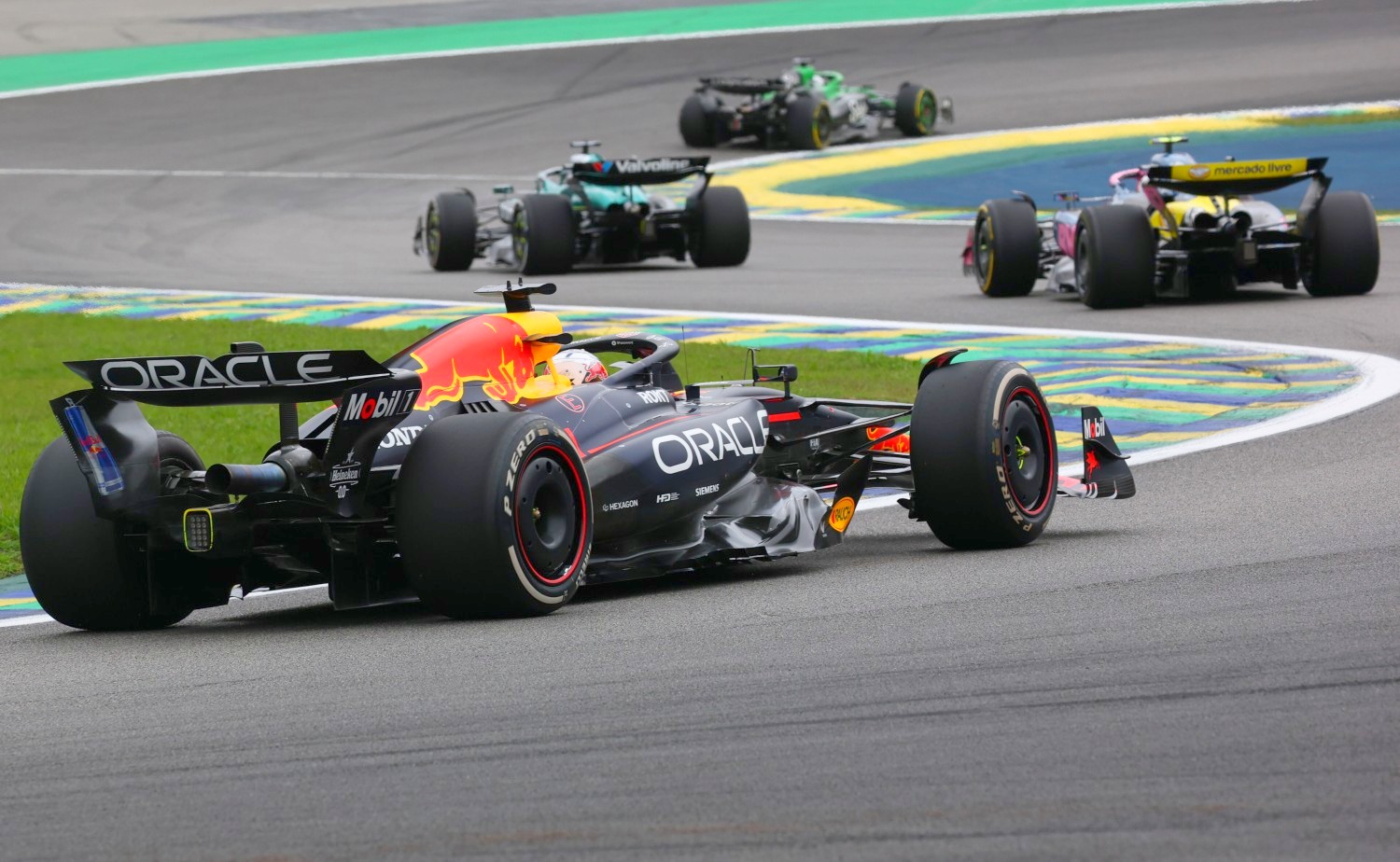Formula 1 News: Will Verstappen’s new engine break the cost cap?
(GMM) McLaren has questioned whether Red Bull breached the spirit of Formula 1’s cost cap rules by fitting Max Verstappen (pictured) with a brand-new engine before Sunday’s Brazilian GP.
After a disastrous qualifying session, Red Bull changed Verstappen’s suspension setup – triggering a pitlane start – and took the opportunity to install a fresh Honda power unit consisting of a new combustion engine, turbo, MGU-K, MGU-H, battery, and control electronics.
It was a move that surprised rivals – especially McLaren, with Verstappen still trying to chase down Oscar Piastri and Lando Norris with three races left to run after Brazil.
“Frankly, these kinds of powertrain replacements defy the rules,” said McLaren team boss Andrea Stella. “I’m curious to know if the cost of this engine is within the budget constraints.
“If it was replaced for performance reasons, that should be factored into the cost calculations.”

Under F1’s financial regulations, engines replaced due to reliability issues are exempt from the budget cap – but voluntary changes purely for performance are not. “That’s one of the reasons we don’t replace engines unless they break down,” Stella added. “We have to meet the cost cap.”
Curiously, Red Bull made no secret that the decision was a strategic one. “It’s always nice to have a new engine,” team principal Laurent Mekies told reporters prior to Stella’s comments.
“We could have finished the year without any changes, but we decided to take advantage of that opportunity. The gaps between the teams are minimal, so every factor matters.”
Dutch commentator Jeroen Bleekemolen told NOS that the benefit was significant. “If you can use a fresh engine, that’s a huge advantage, especially this late in the season,” he said.
“At the end of the year many drivers are without fresh engines, so if you can swap, you have a big edge.”
Editor’s Note: Honda could have given Red Bull the engine free of charge (a gift) for all the victories and championships Verstappen and Red Bull brought them. Cost on Red Bull’s balance sheet $0.00
—
Formula 1 rules specify that the cost of an engine change for performance reasons (not due to failure) is included in the cost cap calculations. This is outlined in the FIA’s 2025 Formula 1 Financial Regulations and Technical Regulations, which exclude standard power unit costs from the cap but treat additional components from team-induced changes differently.
Key Rules and Explanation
The cost cap, set at $145 million for 2025 (adjusted for inflation and other factors), limits eligible spending on performance-related activities. Power unit costs are generally excluded, but only up to a defined limit and perimeter. Here’s how it applies to engine changes:
– Exclusion for Standard Supply (Financial Regulations, Article 3.1(n)):
– Costs for power unit goods and services are excluded from Relevant Costs, but *only up to the applicable maximum price* outlined in the Technical Regulations.
– This covers the standard allocation (e.g., 4 internal combustion engines per driver per season, per Sporting Regulations Article 28.2) plus spares for testing (up to 5,000 km).
– Inclusion for Additional Components (Technical Regulations, Appendix 3, Item A):
– The standard “Power Unit Supply Perimeter” includes the minimum power units needed for the season and testing.
– Additional power units or spares required to replace units “due to accident damage or other team-induced causes” are *outside the supply perimeter* and “incur additional charges.”
– “Team-induced causes” covers voluntary changes for performance gains (e.g., swapping a working engine for a fresher one to reduce degradation and boost output), as these aren’t due to reliability failures from the manufacturer. Such extras trigger grid penalties (Sporting Regulations, Article 28.3) and are not covered by the excluded perimeter.
– Financial Impact:
– Standard supply costs (e.g., up to ~€15 million for new customer teams, or contract prices for others) don’t count toward the cap.
– Performance-driven extras do count, as they are additional charges not protected by the exclusion. This aligns with FIA guidance to prevent teams from exploiting changes for gains without cap consequences.
Context and Recent Example
This distinction promotes fairness by exempting genuine reliability issues (covered in standard supply) while including elective performance tweaks. In the 2025 Brazilian Grand Prix, Red Bull’s change to Max Verstappen’s power unit (adding extras beyond the allocation for performance) prompted McLaren to seek FIA clarification, as team principal Andrea Stella noted: “If the engine was changed for performance reasons, it should go in the cost cap.” Red Bull confirmed the swap offered a “performance gain” via fresher components, fitting the “team-induced” category.
For full details, see the [2025 Financial Regulations (Issue 24)] and [2025 Technical Regulations (Issue 3)]. If regulations evolve (e.g., for 2026), the FIA publishes updates annually.
